calsfoundation@cals.org
Thaddeus Horatius Caraway (1871–1931)
Thaddeus Horatius Caraway was an Arkansas prosecuting attorney who was elected to the U.S. House of Representatives four times and to the U.S. Senate twice. A progressive champion of the poor, Caraway vigorously challenged corruption while aiding Arkansas during the beginning of the Great Depression. His wife, Hattie Wyatt Caraway, filled his Senate seat upon his death on November 6, 1931.
Thaddeus H. Caraway was born on October 17, 1871, in Spring Hill, Missouri, to Tolbert Caraway and Mary Ellen Caraway. After his father’s death when Caraway was a young child, his mother struggled to maintain the family. She moved the family to Clay County, Arkansas, when he was twelve.
Caraway left Arkansas to attend Dickson Normal College in Dickson, Tennessee. Caraway worked his way through school at manual labor jobs, including cotton picking. At Dickson, he met his future wife, Hattie Wyatt, who was also a student there. Graduating in 1896, he returned to Arkansas and taught school from 1896 to 1899 prior to being admitted to the Arkansas bar in 1900. He began his law practice in Lake City (Craighead County), but the location proved less than lucrative; therefore, he began publishing legal notices in the Lake City Sun Times and the Jonesboro Daily Tribune. In 1902, Caraway married Hattie Wyatt, and the couple settled in Jonesboro (Craighead County), a site more conducive to his law practice. The couple eventually had three sons: Paul Wyatt, Forrest, and Robert Easley.
Merging law and politics, Caraway won the race for the prosecuting attorney of the Second Judicial District of Arkansas in 1908. In this office, he gained a reputation as a tough litigator who worked long hours and vigorously prosecuted criminals. He won eleven capital cases during one session of the court, and the crime rate dropped in his district. He was reelected in 1910.
His solid reputation as a prosecuting attorney assisted Caraway in defeating the incumbent candidate R. Bruce Macon in the Democratic primary race for the United States House of Representatives in 1912. As no Republican opposition was present in the general election, he took the seat. In the House until 1921, Caraway was noted for his support of Woodrow Wilson’s World War I policies, the Eighteenth and Nineteenth Amendments to the United States Constitution, and other progressive legislation, especially agriculture reform bills.
In 1920, he ran for the United States Senate against incumbent William F. Kirby in the Democratic primary. Kirby had voted against Wilson’s policy of armed neutrality and had not supported breaking relations with Germany prior to America entering World War I. Caraway hammered Kirby on this point during the campaign and won what had become a bitter race. With the Democratic nomination, Caraway easily trounced Republican Charles F. Cole for the Senate seat. As a senator, he served on the Agriculture and Forestry Committee, the Education and Health Committee, and the Judiciary Committee. Additionally, he focused on tariffs, the Teapot Dome scandal, regulation of lobbyists, the failed effort to convert the Ouachita National Forest to the Ouachita National Park, and attempts to aid Arkansans during the early days of the Great Depression. He also played a role in preventing Congress from adopting federal anti-lynching legislation.
Caraway died suddenly in Little Rock (Pulaski County) on November 6, 1931, from a blood clot related to a kidney stone operation. His wife, Hattie, was appointed by Governor Harvey Parnell to finish his term in December and was confirmed in a special election on January 12, 1932, thus becoming the first woman elected to the Senate. Thaddeus Caraway is buried at Oaklawn Cemetery in Jonesboro.
For additional information:
Kincaid, Diane D., ed. Silent Hattie Speaks: The Personal Journal of Senator Hattie Caraway. Westport, CT: Greenwood Press, 1979.
Ledbetter, Calvin R. “The Other Caraway: Senator Thaddeus H. Caraway.” Arkansas Historical Quarterly 64 (Summer 2005): 123–145.
Williams, Nancy A., ed. Arkansas Biography: A Collection of Notable Lives. Fayetteville: University of Arkansas Press, 2000.
Derek Allen Clements
Pocahontas, Arkansas


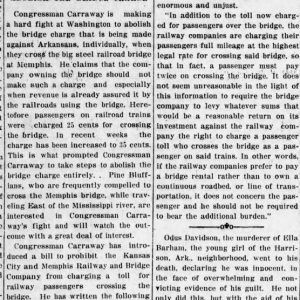
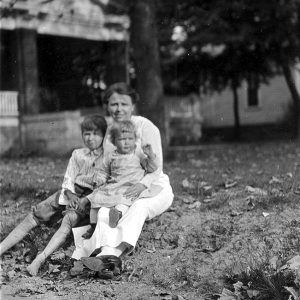
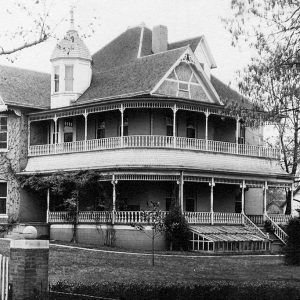
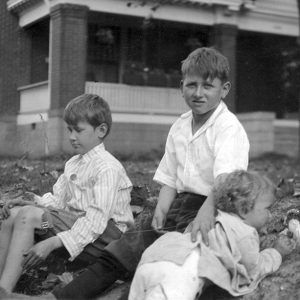
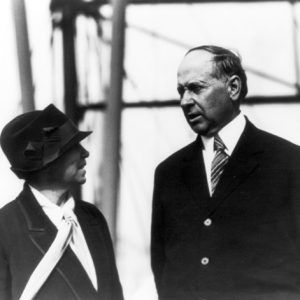

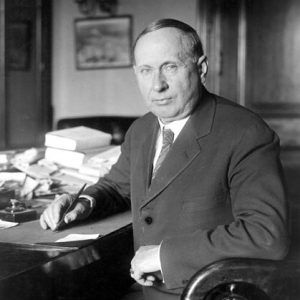
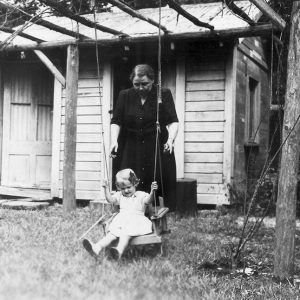
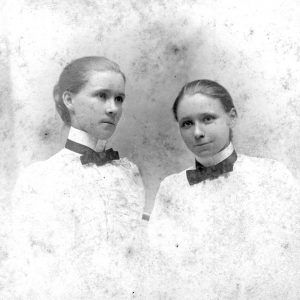




Comments
No comments on this entry yet.